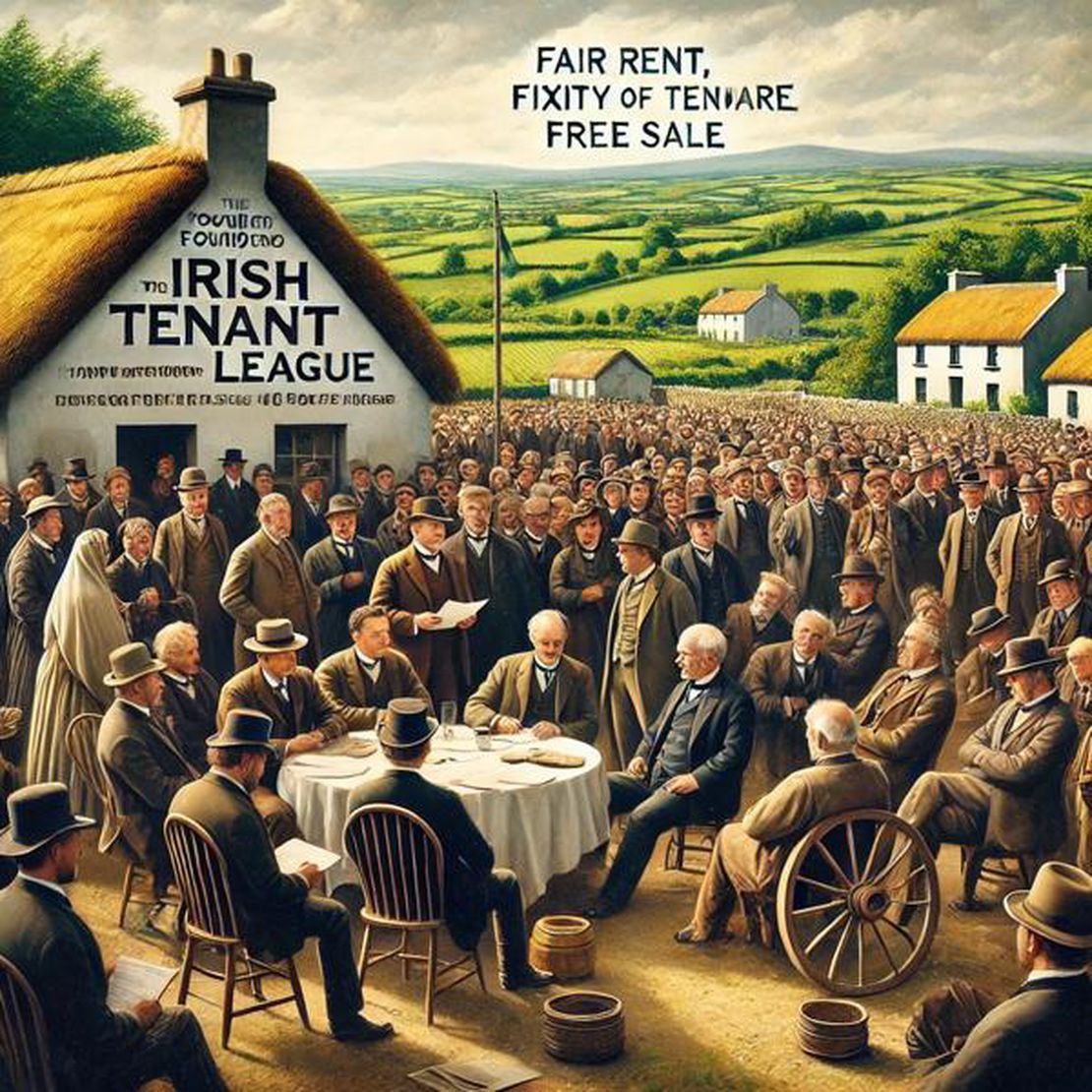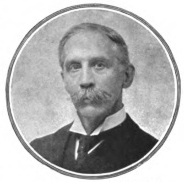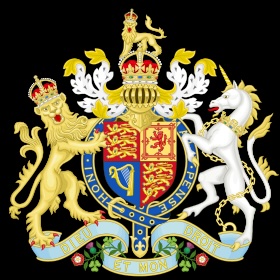- August 9, 1850
The Irish Tenant League was founded in 1850, during a period of significant social and political unrest in Ireland. The League was established in response to the dire conditions faced by tenant farmers under the landlord system, where the majority of the Irish population rented land from a small class of often absentee landlords. The League became a central force in advocating for the rights of tenants and played a crucial role in the broader struggle for land reform in Ireland.
Background
- Land Ownership in Ireland: In the mid-19th century, most land in Ireland was owned by a small number of wealthy landlords, many of whom were English or Anglo-Irish. Tenant farmers worked the land but had little security and could be evicted at short notice, often with no compensation for improvements they had made to the property.
- The Great Famine: The devastating effects of the Great Famine (1845-1852) exacerbated the plight of tenant farmers, leading to widespread poverty, starvation, and mass emigration. The famine highlighted the vulnerabilities of the tenant system and intensified calls for reform.
The Formation of the Irish Tenant League
- Founders and Objectives: The Irish Tenant League was founded by prominent figures such as Charles Gavan Duffy, Frederick Lucas, and John Gray. The League aimed to secure fairer treatment for tenant farmers through legislative reform. Their primary demands included:
- Fair Rent: Rents should be set at a reasonable level that reflected the productivity of the land.
- Fixity of Tenure: Tenants should have security of tenure, meaning they could not be arbitrarily evicted as long as they paid their rent.
- Free Sale: Tenants should be allowed to sell their interest in their holdings to another tenant.
Activities and Influence
- Campaigns and Petitions: The League organized meetings, petitions, and protests to raise awareness of the injustices faced by tenant farmers and to pressure the British government to enact land reform.
- Electoral Success: The League also sought to influence parliamentary elections by supporting candidates sympathetic to their cause. They achieved significant success in the 1852 general election, where several Tenant Right candidates were elected.
- Decline and Legacy: Although the League experienced internal divisions and eventually declined in influence, it laid the groundwork for future land reform movements in Ireland, including the Land League of the 1870s and the eventual passage of the Land Acts, which gradually transferred ownership of the land from landlords to tenants.
The Irish Tenant League played a critical role in advocating for the rights of Irish tenant farmers and in shaping the broader struggle for land reform in Ireland. Its efforts contributed to the eventual transformation of the Irish land system, which had profound implications for the country’s social and economic development.

 ← Samuel Butcher, scholar, is born in Dublin
← Samuel Butcher, scholar, is born in Dublin
 The Irish Franchise Act is enacted and has the effect of increasing the electorate from 45,000 to 164,000 →
The Irish Franchise Act is enacted and has the effect of increasing the electorate from 45,000 to 164,000 →